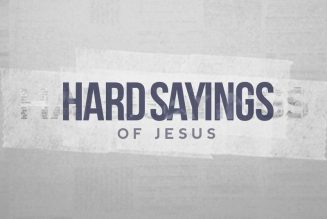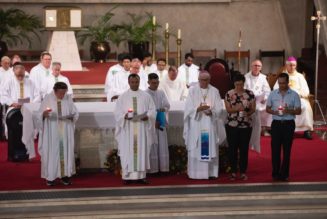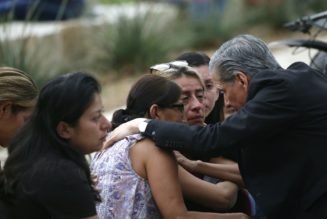Last week Cardinal George Pell, a great man, a leader, a hero died, and I lost a friend. Many have written beautiful stories about him; I would like to share some of the things I learned spending time with His Eminence while working with him at the Vatican and simply enjoying meals together in Borgo Pio.
His Eminence felt his mission at the Vatican was to change things. You can’t get from here to tomorrow in one giant leap, he used to tell me. Extraordinary things get done one step at a time and we must experiment and take risk by constantly generating small wins and by learning from mistakes and, despite persistent opposition and inevitable setbacks, we must demonstrate the courage to continue the journey.
We discussed the fact that too often we forget that our parishes run also as small businesses. The lack of vocations has the effect that in many dioceses or religious orders priests are made pastor or hold positions of responsibility within 2 years of their ordination without ever having benefitted from a basic introduction in organizational and pastoral management and administration, accounting controls, budgeting, fundraising, personnel management, facilities and ground maintenance, and so on.
The priest’s role as a spiritual father becomes extremely difficult if he is bogged down by the managerial tasks of running a diocese, a parish or a religious order, particularly if he has little-to-no experience with these matters, and no mentors to consult. We must recognize the managerial role of the priest as implicit in his vocational responsibilities, he told me one day, and for this reason I need you to figure out a way to assist our Clergy in this area of their ministry thereby enabling them to make their time behind a desk more effective and to give them more time with their people. We need to introduce new approaches, methodologies, managerial and organizational techniques for identifying, solving and preventing crises before they even arise, as well as reflects on the place of the priest’s managerial responsibilities within his call as to live as shepherd and servant.
I’ve been doing exactly this since that day in February 2015.
Cardinal Pell taught me that all business leaders, lay and clerical alike, must consistently live virtues in the typical situations of their business life, establishing a track record of reliance and dependability for others and for their own holiness. Virtuous dispositions are a product of practice that becomes habit. We are known more by what we do and how we choose, than what we say. It is the little decisions to practice transparency, that establishe the reputation of a leader who can be counted on to be transparent. It is a lie that one could be a successful business person without being morally virtuous. True success in business requires moral virtues.
This is a way to think about how you want to be and what you should strive to become as a Catholic business person, manager, and leader.
Ask the Lord for the grace to become a virtuous man, the Cardinal once told me during a very complicated budgeting analysis session. Be confident that the Spirit that lives in you, will always drive you to proclaim Jesus Christ in your family, in your business and in society through the witness of your life.
Each and every one of us is called by Almighty God to be holy. We are called to be saints. To reach such sublime heights, one can say that we are called to be great. People are looking for meaning in their lives and answers to human questions such as, “Why are we here?” and “How ought we to live?”. If we aren’t providing these answers in a compelling way, the Cardinal said, they won’t remain unanswered; they will be answered in distorted half-truths that promise real solutions but cannot deliver them.
The stakes could not be higher. Let’s begin answering these questions so we can stay awake in this woke world.
M.Enzler








